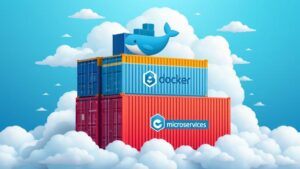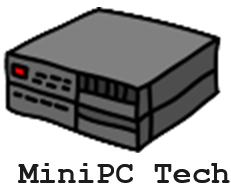Maximizing Mini PC Performance with Containers: What You Need to Know
You might be surprised to learn that containers for mini pcs can drastically improve their performance. By utilizing tools like Docker, you can deploy applications more efficiently than ever before, while traditional virtual machines often fall short due to their heavy resource demands. But what exactly sets these containers apart, and how can they enhance your computing experience? As we explore the nuances between containers and VMs, you’ll discover the unique benefits that could reshape your approach to application management.
Key Takeaways:
- Containers provide lightweight, efficient application management on mini PCs.
- Docker containers use fewer resources than traditional virtual machines.
- Faster startup times and scalability make containers ideal for modern workloads.
- Containers enhance portability and consistency across different environments.
- Microservices architecture benefits from the modularity of containerized applications.
Understanding Containers for Mini PCs

Containerization revolutionizes the way applications are deployed and managed, providing a streamlined solution for developers. With this container-based approach, applications run in isolated environments, known as containers, which package the application code along with its dependencies. This guarantees consistency across different environments, making your deployment process smoother.
Unlike traditional virtual machines (VMs), which emulate hardware and require a full guest operating system, containers share the host operating system’s kernel. This results in lower overhead and faster startup times, allowing you to run multiple applications on the same hardware efficiently. Docker, a leading containerization platform, simplifies the creation, deployment, and management of these containers, enhancing your development process and scalability.
Containers are especially effective in microservices architectures, where applications are divided into smaller, independent services. Each service can be developed and scaled individually, promoting flexibility and collaboration.
Overview of Docker

Docker is a powerful platform that transforms the way you deploy applications by automating the process within lightweight, portable containers. Unlike traditional virtual machines, which require their own operating systems, Docker containers utilize the host operating system’s kernel. This makes them considerably more resource-efficient and ideal for running multiple VMs on your home network.
With Docker, you can experience several key benefits:
- Isolation: Each Docker container runs independently, preventing applications from interfering with one another.
- Scalability: Easily scale applications up or down to meet demand, thanks to rapid resource provisioning.
- Dependency Management: Docker packages applications with all necessary libraries and configurations, simplifying deployment.
- Consistent Performance: Run Docker containers consistently across various environments, ensuring reliability.
- Microservices Architecture: Facilitate a microservices approach to application development, allowing for modular and efficient workflows.
Exploring Virtual Machines

Virtual machines (VMs) offer a robust solution for running multiple operating systems on a single physical server, making them an essential tool in modern IT environments. If you need to run various applications, including a media server, VMs let you create isolated environments that mimic physical machines. Each VM operates independently with its own guest OS, virtual hardware, and applications.
Here’s a quick comparison of key aspects of VMs:
| Feature | Description |
|---|---|
| Isolation | Each VM runs in its own environment. |
| Resource Allocation | Dynamic CPU, memory, and storage management. |
| Hypervisor | Manages interactions between VMs and hardware. |
Comparing Docker and VMs

When evaluating modern application deployment, comparing Docker containers with virtual machines (VMs) reveals distinct advantages and trade-offs. Docker containers are lightweight, sharing the host OS kernel, which makes them faster to start and more resource-efficient than VMs. In contrast, VMs require a hypervisor and a full guest OS for each instance, leading to higher resource consumption.
Here are some key differences to contemplate:
- Resource Utilization: Containers consume fewer resources, enabling higher workload density on a mini PC for home.
- Startup Speed: Docker containers start almost instantly, while VMs can take minutes to boot up.
- Scalability: Containers allow for granular scaling as microservices, unlike VMs that run entire applications.
- Management Complexity: While shifting to containers may have a learning curve, tools like Docker Desktop simplify this process.
- Portability: Containers enhance application portability across different environments, helping you adapt quickly.
To fully embrace these benefits, you’ll want to learn in the Docker ecosystem, especially if you need to run multiple applications efficiently.
Benefits of Using Containers

Using containers for mini pcs brings a host of benefits that can markedly enhance your workflow and application management. One of the key advantages is their lightweight nature, allowing you to run multiple applications in isolated environments without the overhead of traditional virtual machines. This means faster deployments and a more efficient use of your mini PC’s resources.
Here’s a quick comparison of container benefits:
| Benefit | Description | Use Case Example |
|---|---|---|
| Resource Efficiency | Containers use the host OS kernel, making them lighter and faster. | You can run Windows apps without heavy virtualization. |
| Portability | Applications run consistently across different platforms. | Easily deploy on various cloud services. |
| Rapid Development | Supports CI/CD workflows with version control and dependency management. | Quickly iterate on your software. |
| Scalability | Simplifies management of microservices architectures. | Scale individual components as needed. |
With containers, you gain flexibility, enabling you to focus on developing and deploying applications rather than managing infrastructure. Whether you’re working on a single project or scaling to multiple environments, containers would need to be part of your toolkit for modern application management.
Unlock the Full Potential of Mini PCs with Docker Containers
To summarize, containerization, especially with Docker, revolutionizes how you deploy applications on mini PCs. Did you know that containers can start up in seconds compared to minutes for traditional VMs? This speed not only saves time but also enhances your workflow, allowing you to focus on what matters—developing and scaling your applications. Embracing containers can greatly boost your productivity and streamline your processes, making them a smart choice for modern computing environments.
Frequently Asked Questions
What are containers for mini PCs?
Containers are isolated environments that allow applications to run with all necessary dependencies, ensuring efficient use of mini PC resources.
How do containers differ from virtual machines (VMs)?
Containers share the host OS, making them more resource-efficient and faster than VMs, which require full guest operating systems.
Why should I use Docker on my mini PC?
Docker optimizes application deployment by providing lightweight containers that scale easily and consume fewer resources than VMs.
Can I run multiple applications with containers on a mini PC?
Yes, containers allow you to run multiple applications in isolated environments, improving performance without the overhead of VMs.
What are the benefits of using containers on mini PCs?
Containers enhance resource efficiency, portability, fast startup times, and scalability, making them ideal for application management on mini PCs.
Is Docker difficult to learn for mini PC users?
Docker is user-friendly and offers tools like Docker Desktop, which simplify the learning curve for beginners on mini PCs.

I am a retired software engineer with experience in a multitude of areas including managing AWS and VMWare development environments. I bought a relative a mini-PC a year ago and have become passionate about the technology and its potential to change how we deploy software.

